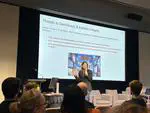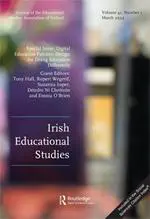news
Democratic education remains a contentious and much strived for goal within teaching practice. What is most often lacking are the precise tools and techniques that might be combined to make this democratic goal a reality within schools. Considerations of democratic approaches to education within the literature are frequently theoretical, but practically quite limited. Moving from a highly theoretical space to a practical approach ready to be applied within a modern classroom, this paper will explore a confluence of teaching approaches that might make democratic education possible. The techniques, tools and platforms provided for consideration by teachers and lecturers here are grouped around three core themes: accessibility; relevance and efficiency to generate and allow a space that is democratic in nature. The tools for accessibility are: Instructional Video; Assistive technologies; and Generative Artificial Intelligence. Whilst for relevance: YouTube and TikTok are explored. In regards to efficiency: Flipped Learning, Retrieval practice and Method of Loci are discussed. And when honing in on the democratic nature of classroom spaces Socratic circles and a broadly Socratic approach are key. By combining these techniques this paper will propose a highly practical, modern method for producing a democratic classroom, with notes on how teachers might be able to carve out space and thinking to defend their choices and the logic behind combining these techniques to address modern students’ needs and requirements.
Read more here.
The definition is:
Educational technology is the ethical study and application of theory, research, and practices to advance knowledge, improve learning and performance, and empower learners through strategic design, management, implementation, and evaluation of learning experiences and environments using appropriate processes and resources.
An explanation and discussion of this definition will be published shortly. More here: https://www.aect.org/aect/about/aect-definition
This paper develops the conversation focused on what professional competencies and skills learning design professionals (LDs) have or need to develop to meet contemporary learning design professional demands in organisations and learning institutions. In this paper, we used the
lens of lifelong learning theory and skill analytics approach to develop a professional framework for learning design professionals. As people transition into thirdspace professional spaces like educational or learning design, a professional development framework can act as a reflective tool to support workplace learning and identity framing to look backward and forward to achieve personal and professional goals. A framework like this can potentially guide and support learning design team and individuals to reflect on what skills they possess and identify gaps to plan how to address skill gaps through professional development, workplace learning and networking opportunities.
Read more here.



